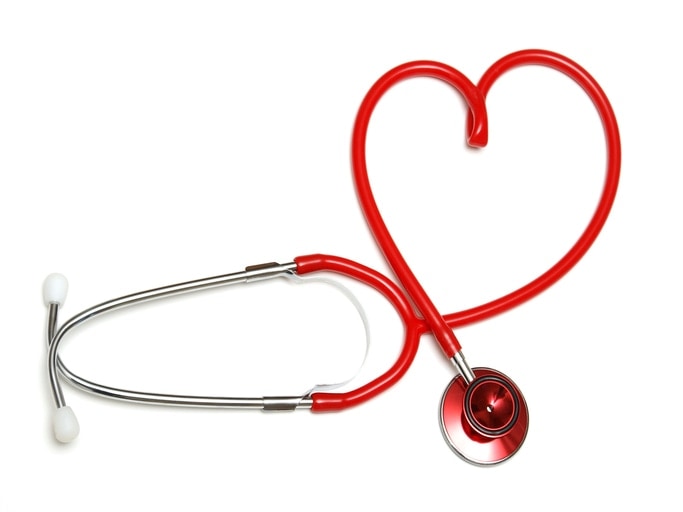Heart and stroke month - love your beating heart

Your heart beats strong and steady at an average rate of 60 to 100 beats a minute, pumping life-giving blood through your veins. You literally can’t live without it.
Heart disease is the #1 cause of death in North America. Every seven minutes, a person dies from stroke or heart disease in Canada. Did your heart just skip a beat right there? Those are frightening statistics.
It’s no coincidence that both Valentine’s Day and Family Day are in the same month as Heart & Stroke Month. Just as we show love to our Valentines and our families, let’s show a little love to our beating hearts.
What is heart disease?
Heart disease refers to a group of conditions that affect the structure and functions of your heart; it includes coronary heart disease, cardiac arrest and stroke.
Coronary heart disease or cardiovascular disease occurs when plaque builds up in the arteries, restricting the flow of blood to the heart. When blood flow to the heart becomes blocked, it can lead to a heart attack. There are 70,000 estimated heart attacks in Canada each year.
Cardiac arrest is a sudden electrical malfunction in the heart that stops the heart from beating. It can cause death in minutes. A Canadian suffers a cardiac arrest every 12 minutes.
Strokes are caused by a blockage or the rupture of a blood vessel that supplies blood to the brain. Every year, 14,000 Canadians die from strokes.
What causes heart disease?
Heart disease can be caused by different factors such as diabetes, age, smoking, hypertension, cholesterol levels, obesity, lack of activity, stress, family history and menopause.
- While some of these factors can’t be avoided, there are still heart-healthy ways you can reduce your risk of getting a heart condition:
- Take a brisk walk, go for a bike ride, jog or go skating. All it takes is 10 minutes of exercise a day to:
- Lower your blood pressure
- Boost your HDL (“healthy” cholesterol)
- Increase your energy
- Help you manage your weight
- Help you sleep better (Poor sleep quality is linked to high blood pressure, cholesterol, decreased tolerance for stress, and poor blood sugar control in diabetics.)
- Reduce the risk of a second heart attack or stroke event by up to 50%
- If you’re a smoker, make every effort to quit now.
- Check your blood pressure regularly, and know how to control it.
- Eat a healthy low-fat diet.
- Achieve and maintain a healthy weight.
- Limit alcohol consumption (10 drinks/week for women, 15 drinks/week for men).
- Reduce stress through yoga, meditation, listening to music, laughing more, reducing caffeine and alcohol, and time with loved ones.
- Visit your doctor regularly to check in on your heart health.
Know the signs so you can act quickly.
It is possible to recover from a cardiac incident or stroke, provided you or someone nearby can spot the signs and act fast.
How do you know it’s a stroke? The Heart and Stroke Foundation has established the FAST rule:
Face – is it drooping?
Arms – can you raise both?
Speech – is it slurred?
Time – to call 911.
When it comes to heart attacks, men and women have different indicators. Here’s what to watch for:
Men
- You have an elephant on your chest
- Tight squeezing sensation
- Rapid or irregular heartbeat
- Can't get enough air
- Feel like you're going to pass out
- Break out in a cold sweat
- Upset stomach
Women
- Tired for days or suddenly exhausted
- Feel anxious and can’t sleep
- Feel like you're going to pass out
- Upset stomach
- Upper back, shoulder, throat or jaw pain
- Chest pressure that may spread to your arm
Consider critical illness insurance.
One in four Canadians is living with heart disease. These people live with chronic pain, restricted activities, disabilities and an inability to work.
If you’re concerned that you may one day suffer a cardiac event that can dramatically restrict your lifestyle, critical illness insurance can be a lifeline. Critical illness insurance is a one-time payment that can provide financial assistance to alleviate the challenges associated with disease-related events such as coronary artery bypass surgery, stroke, a heart attack, heart valve replacement, or heart transplant.
Your heart is the only thing keeping your body alive. Learn how to love your heart and make sure the beat goes on.
Speak to a Licensed Life Insurance Expert Now 888-594-3105



